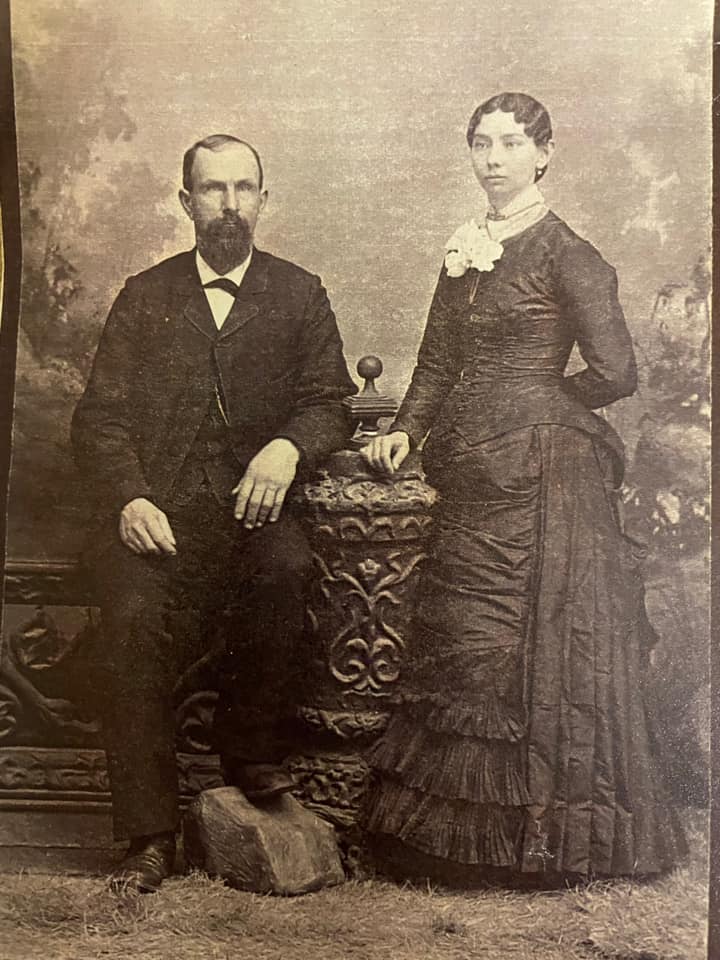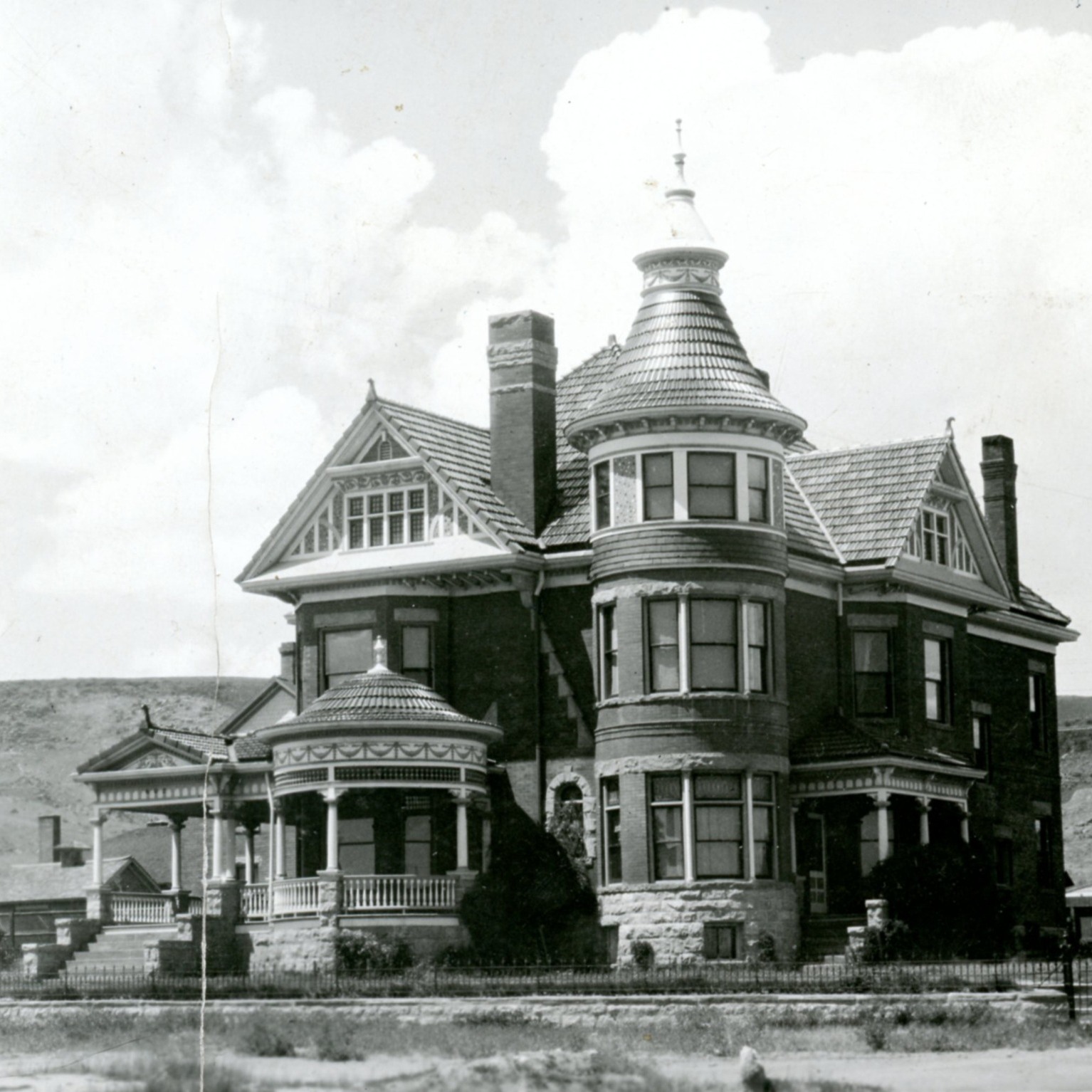|
THIS
COUNTY IS OPEN FOR ADOPTION.
IF
YOU WOULD LIKE TO ADOPT IT, PLEASE CONTACT THE STATE
COORDINATOR
If you have any information to share
about Carbon County Wyoming please feel free to email me:
Rebecca
Maloney
George and Julia Childs
Ferris

When most people talk about
George Ferris, its usually about how he came
out west as a game hunter for the Wells
Fargo Stage Coach Company and the Union
Pacific Railroad, settled in Rawlins, got
into mining copper, made millions,
commissioned one of the most significant
Queen Ann Style mansions in Wyoming to be
built here in Rawlins, and passed away
before he could move into it with his
family.
But did you know that before
George came to Rawlins he had fought in the
Civil War?
George Ferris was born in
Eaton Rapids Michigan on January 21st 1840.
He grew up in that town living a modest life
and developing a love of riding horseback.
On April 12th 1861 Civil War broke out
in the United States splitting the country
in two. Being in Michigan, George was fairly
well removed from the war, however
eventually he could no longer sit back and
read headlines in the news paper. He decided
he had to take action and make his
contribution to the war effort.
On
September 9th 1862 at the ripe old age of
22, George enlisted into the Union Cavalry.
When he enlisted he was given the rank of
Corporal, but in less than a year, on June
26th 1863, he was promoted to Sergeant.
George served with the 7th Michigan Cavalry
in Company D. The 7th Michigan Cavalry
Regiment was a part of the famed Michigan
Brigade, commanded for a time by Brigadier
General George Armstrong Custer. This
regiment would have seen the Battle of
Gettysburg, Kilpatrick's Raid on Richmond,
Battle of the Wilderness, Battle of Yellow
Tavern, Battle of Cedar Creek, Battle of
Five Forks, and Appomattox.
George was
mustered out on October 6th 1865, and so was
set on his path that would bring him to
Rawlins Wyoming.

The Ferris
Mansion 607 W Maple St, Rawlins, WY 82301
The Ferris Mansion in Rawlins is both a
sad and an inspiring tale all wrapped into
one.
George Ferris had for his whole
life pursued great wealth. On the very day
he achieved it by selling the Ferris-Hagerty
mine for $1 million, he was killed while
riding in a runaway stagecoach. The accident
happened on the aptly named Snow Slide Hill
on his way home from the mine in Encampment.
Newspaper accounts of the time say
that his stagecoach was passing an area
where a team of horses had been killed by an
avalanche the prior year and the stench of
the dead bodies terrified the stagecoach’s
team of horses. Ferris was in the stagecoach
with a brother, who escaped unharmed. But
Ferris was tossed and hit a brake block and
brake beam on the wagon as it was
overturning.
“There is something
singularly pathetic in the death of Mr.
Ferris, and it furnishes a theme for the
moralists who like to discourse on the
vanity of life and the rewards that often
come from a life of toil too late to be
enjoyed,” a newspaper obituary at the time
read. “Having spent all his years seeking
wealth, Mr. Ferris finally attained it in a
way that has made his name famous all over
the land, only to have the reward snatched
from his hands on the very day of his
triumph.”
If his death had been
pathetic, what came next could certainly be
considered inspiring.
His wife Julia
announced that she would complete
construction of the Ferris Mansion, a Barber
and Klutz home likely sourced from the book
“Modern Dwellings,” which was published in
1888.
Barber was serving a nouveau
riche clientele who had made fortunes out
West and wanted homes that made a statement,
not only about their success, but about the
success of the West.
The cost for
Julia to complete the spacious 21-room,
three-story home with 65 windows and five
fireplaces was in the neighborhood of
$60,000 in 1900 dollars, plus an additional
$25,000 for the furnishings, which she
sourced from San Francisco. A glass
chandelier in the home itself cost $1,000.
Colorado-pressed brick custom-designed
for the home was used to form the home’s
18-inch-thick walls, which had an air space
in the middle. Local sandstone was used to
trim between the bricks, as well as the
granite base of the home.
The roof
tiles were interlocking ceramic Ludiwici
tiles with a lifespan of 100 to 300 years.
Do
you have information you'd like to share? Or would you
like to help us?
Please
volunteer
to help the WYGenWeb Project.
The
WyGenWeb Project
Colleen
Pustola,
State Coordinator
Rebecca
Maloney,
Assistant State Coordinator
AVAILABLE
– County
Coordinator
Being
a County or State Administrator is fun and rewarding. If you
have an interest in the history of Wyoming and the genealogy
of it's residents please consider it. If you think "there
is no way I can do this" there are many people ready,
willing and able to help you. It's not near as difficult as
you might think.
|